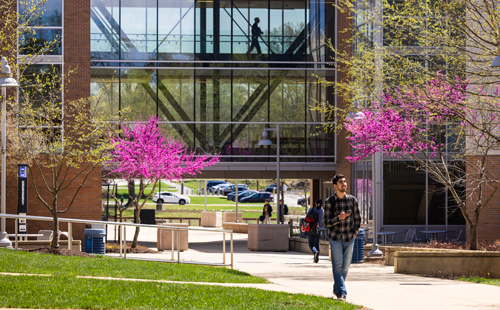The common dream consists of situations that aren’t actually happening, but that the brain still processes while you sleep. In most cases, it might seem strange to the dreamer that they would even have dreams in the first place. The dreamer recollects nothing that could have logically triggered the dream, so what does it mean?
There is no definite explanation as to why people dream or what the occurrences in the dream stem from, yet everyone has unique dreams while they sleep each night.
According to AP Psychology teacher Jared Pulliam, there are two major theories as to why people dream. The first is the Sigmund Freud theory, which “argues that there are manifestations of unconscious fears, desires and conflicts” that take form in dreams. The second is the Hobson-McCarley theory based on activation synthesis, meaning “dreams are a byproduct of random neural firing, and our frontal lobe tries to organize it into a storyline.”
There are countless other theories to explain dreams. One of the more common beliefs among people is that dreams allude to a deeper meaning. In other words, some people believe that each dream is meant to symbolize something in the dreamer’s life.
According to Pulliam, this theory is not “well accepted by the scientific community.”
Dreams can be frightening. In light of this, some people believe they can intentionally avoid them.
“I didn’t have dreams for five years,” sophomore Dillon Nussbaum said. “After seeing the movie Nightmare on Elm Street I figured out that if I stayed up until 2 a.m., I wouldn’t have dreams.”
Someone who does not frequently remember their dreams is commonly under the impression that they do not have dreams at all when, in fact, they simply do not remember them.
“Everyone dreams every single day,” Pulliam said. “You dream throughout the night; some dreams stick out better than others. We oftentimes don’t place much emphasis on our dreams. A crazy or disturbing dream will stay with you longer.”
Upon having an unsettling dream, the dreamer can be pulled back into consciousness. The prospect of this might not seem as likely due to the fact that people do not dream the entire time they are asleep.
According to Pulliam, dreams occur during the REM (rapid eye movement) stage, which is the fifth and final stage of the sleep cycle. People are more likely to remember their dreams when they wake up naturally rather than by an alarm or other disturbance.
It is impossible to remember all dreams, and most of the ones people do remember tend to be forgotten over time.
In order to hold onto their dreams longer, some students have taken to writing them down. Doing this can help the dreamer understand more about their subconscious mind.
“Whenever I can remember dreams really well I write them down and dissect them to find hidden meanings,” sophomore Brenna Means said.
Dreams are a basic part of life, and though they cannot be fully explained, they can leave dreamers feeling anywhere from perplexed to indifferent. Many people contemplate their dreams to some extent because they are completely uncontrollable and pertain to the particular individual alone.
“[When I’m dreaming], I feel like there’s another person inside me, telling me things,” Means said.







